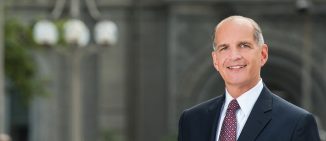New Audio-Only Telemedicine Bill to Expand Telehealth Beyond the Pandemic
During the COVID-19 Public Health Emergency, the Centers for Medicare and Medicaid Services (the “CMS”) relaxed some rules to expand access to telehealth, including through audio-only communication platforms. With the COVID-19 vaccine rollout, the public health emergency is expected to be brought to an end. As such, the emergency measures temporarily put in place will expire, leaving many patients in rural areas and lower-income households without access to telehealth services.
A survey from a digital behavioral health company, Triduum, found that 81% of behavioral healthcare providers began using telehealth for the first time in the past six months due to the COVID-19 Public Health Emergency. According to Triduum, healthcare professionals have recognized the overall improvement in consistency of treatment, adherence to treatment and recommendations. For example, patients felt more comfortable discussing mental health condition from the comfort of their home. All of these positive changes are associated with the shift to virtual care.
Nonetheless, some of the challenges with telehealth services still exist. These challenges are often attributed to the social determinants of health – such as poverty or lack of internet connection – that can adversely affect some patients’ ability to effectively use virtual care. For such patients, an audio-only connection with a doctor is the only feasible option. The relaxation of the federal rules during the Public Health Emergency permitted audio-only services and gave lower-income and rural patients access to safe and effective mental health treatment. According to some resources, nearly one-third of all Medicare telehealth visits during the public health emergency were delivered by audio-only telephone.
Even after the healthcare crisis wanes, healthcare specialists expect continued high utilization of behavioral health services due to the lasting impact of the pandemic. However, despite the anecdotal evidence of the increased surge in behavioral health needs and a heightened demand for telehealth services, underserved Medicare patients will again be devoid of access to healthcare when the healthcare crisis ends and CMS no longer reimburses providers for audio-only visits.
As a result, Congressmen Jason Smith (R-Mo.) and Tony Cardenas (D-Cal.) have introduced The Permanency for Audio-Only Telehealth Act that would make the audio-only treatment a permanent form of telehealth, rather than a temporary emergency measure. More specifically, the legislation would authorize CMS to pay providers for audio-only evaluation management services and behavioral health services. The bill would remove geographic restrictions and allow patients to call-in for such services from their homes, thus removing the barriers to healthcare for rural patients who often lack access to broadband or video technology.
While opponents of the bill argue that a phone call is not a sufficient platform to establish the doctor-patient relationship, the legislation has the support of many groups, including the American Psychological Association (the “APA”). For example, APA CEO Dr. Evans endorsed the bill in a press release, and stated: “Allowing patients to receive mental health services by audio-only telephone is a matter of health equity for underserved populations, and APA applauds this important equalizer… This bill will allow patients to receive services at home no matter where they live – whether in rural, urban or suburban communities.”
The information contained in this publication should not be construed as legal or medical advice, is not a substitute for legal counsel or medical consultation, and should not be relied on as such.






